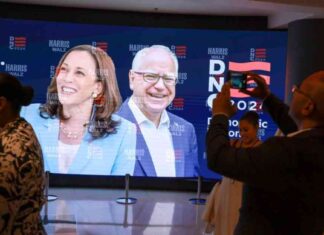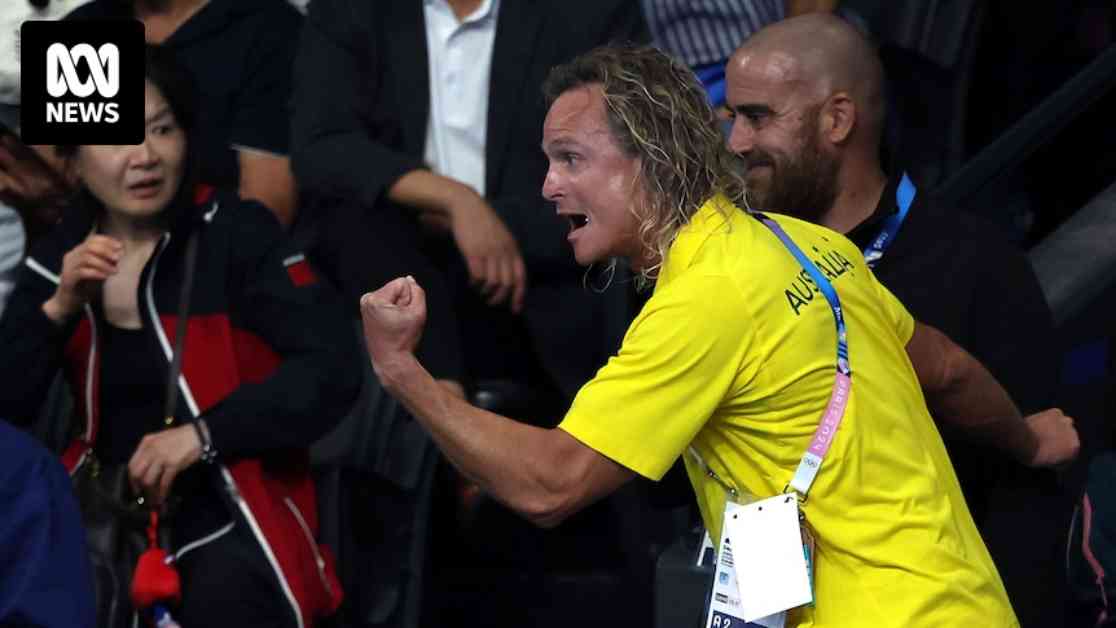Disney and ESPN Blackout on DirecTV: Everything You Need to Know
Walt Disney Co. made headlines on Sunday as it pulled ESPN and other channels from DirecTV just minutes before the start of a high-profile USC football game and during the U.S. Open tennis tournament. This move left sports fans in a frenzy as they found themselves caught in the middle of a contentious contract dispute between the two media giants. With more than 10 million DirecTV and U-Verse video customers affected by the blackout, the feud between Disney and DirecTV has escalated to a significant scale.
The negotiation between the two companies had been ongoing at DirecTV’s headquarters in El Segundo for weeks, but unfortunately, they failed to reach a new licensing agreement by the September 1 deadline. This blackout serves as a stark reminder of the challenges traditional television companies face as consumers shift towards streaming services in the digital age. Emarketer senior analyst Ross Benes aptly summarized the situation by stating, “Consumers are going to blame somebody, but really, it took both of these companies to get into this position.”
Why is this happening?
The core of the dispute lies in the escalating costs of licensing programming that pay-TV providers like DirecTV have to bear as their customer base erodes due to cord-cutting. Traditional TV distributors are struggling to maintain profitability in their video channel businesses and fear that significant rate increases will only drive away more customers. The expense of carrying broadcast channels such as ABC, CBS, Fox, and NBC, as well as sports channels like ESPN, has been on the rise as programmers seek to pass on the increased costs they incur from sports leagues and conferences.
DirecTV sought flexibility from Disney to offer smaller, genre-themed packages to its customers. However, Disney has historically mandated that pay-TV companies carry its cable channels, including ESPN, in a vast majority of their subscribers’ homes. ESPN, being one of the most expensive basic cable channels, costs distributors nearly $10 per month per subscriber home. This has led to a central issue in the current dispute – Disney’s insistence on “minimum penetration” for its channels, including ESPN, where ESPN must be delivered to approximately 82% of DirecTV’s subscribers.
Over the years, this minimum penetration requirement has allowed Disney to collect substantial fees, even from subscribers who may not watch sports content regularly. Pay-TV companies are obliged to pay penalties if they fail to meet the minimum threshold set by Disney. DirecTV argues that since less than 40% of its customers actively watch Disney sports content, it is unfair to burden those subscribers with the high costs associated with sports programming. On the other hand, Disney emphasizes its investment in high-quality programming and asserts that it has offered its channels, including ESPN, to DirecTV at market rates.
DirecTV is pushing for relaxed penetration rates and reduced fees for not meeting the threshold. The company points out that only 10% of its customer base regularly watches kids programming, yet more than 80% of its subscribers are paying for those channels. Additionally, DirecTV and other distributors have expressed dissatisfaction with the efforts of Disney and other entertainment giants to launch their streaming services, which compete directly with their long-time partners – the pay-TV companies. Disney, Warner Bros. Discovery, and Fox Corp. collaborated this year to develop a sports streaming service called Venu as an alternative to platforms like DirecTV. However, this initiative faced legal challenges, with a federal judge in New York temporarily blocking Venu’s launch.
How long will this dispute last?
The duration of the current dispute remains uncertain, as similar conflicts in the past have varied in their resolution timelines. Last year, a dispute between Disney and Charter Communications lasted 12 days, resulting in Charter dropping some smaller Disney-owned channels while gaining the right to offer Disney streaming services like Disney+. However, the outage proved costly to Charter, leading to more subscriber losses than anticipated. Typically, these disputes conclude when both parties begin to feel the economic repercussions. Benes remarked on the high stakes involved, stating, “If DirecTV doesn’t have ESPN channels for the next three months, that will lead to even more cord-cutting. It could be another nail in the coffin.”
What programs might be affected?
Customers residing in cities served by Disney-owned ABC television stations, such as KABC-TV Channel 7 in Los Angeles, will experience interruptions in their favorite programming, including shows like “Good Morning America,” “Jeopardy,” and local newscasts. Disney owns a total of eight ABC stations across cities like San Francisco, Fresno, New York, Chicago, Houston, Philadelphia, and Raleigh-Durham. The impact of the blackout is particularly felt by sports fans, with the ongoing U.S. Open tennis tournament and college football games being adversely affected.
College football enthusiasts were left disappointed as they missed the USC – Louisiana State University clash on ESPN, where the 23rd-ranked Trojans secured a thrilling last-minute victory over the No. 13-ranked Tigers. ESPN’s coverage of the U.S. Open tennis tournament, featuring the men’s and women’s quarter-finals and semifinals, has also been disrupted. College football is a significant component of the programming on ABC and ESPN, further exacerbating the impact of the blackout on sports fans.
Monday Night Football, a popular sports broadcast on ESPN and ABC, is set to kick off with a highly anticipated match between the New York Jets and the San Francisco 49ers. The return of Jets quarterback Aaron Rodgers, who suffered a season-ending injury in last year’s Monday Night Football opener, adds to the intrigue of the upcoming game. ABC is also scheduled to host the first presidential debate between Vice President Kamala Harris and former President Trump, with other networks carrying ABC’s feed for the event. Furthermore, the 76th Primetime Emmy Awards show, hosted by father-and-son comedy duo Eugene and Dan Levy, is at risk of being inaccessible to millions of viewers if the dispute lingers for an extended period.
Is there a work-around?
Viewers seeking access to ABC signals can utilize digital over-the-air antennas, albeit without access to Disney’s cable channels like ESPN, ESPN2, Disney Channel, FX, or National Geographic. Alternative services that offer Disney cable channels include platforms like YouTube TV, Sling TV, Hulu + Live TV (owned by Disney), FuboTV, as well as traditional cable and satellite providers such as Charter Spectrum, Cox Communications, Comcast, and Dish Networks.
Can I get a refund?
DirecTV has taken steps to compensate customers for the disruption by offering $20 credits that can be applied to an upcoming bill. Customers are required to request the credit to receive the compensation for the blackout period.
In Conclusion:
The blackout of Disney and ESPN channels on DirecTV has had far-reaching implications for sports fans and viewers of popular shows like Good Morning America and Monday Night Football. As the feud between Disney and DirecTV continues to unfold, the impact on programming and consumer choices remains a critical issue. While alternative viewing options exist, the standoff between these media giants underscores the challenges faced by traditional television companies in adapting to the changing landscape of digital media consumption. As viewers navigate the implications of this blackout, the resolution of the dispute remains uncertain, leaving many eagerly awaiting the return of their favorite programs.



























